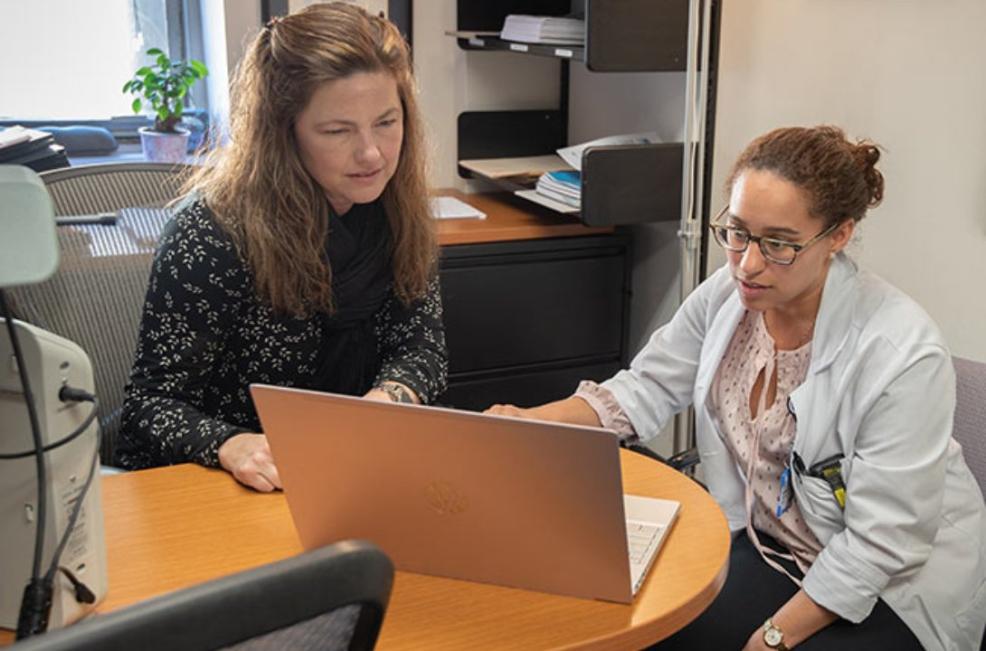The National Cancer Institute sent, this week, an email to its member institutions welcoming the Duke BioRepository & Precision Pathology Center — as the new site of the Southern Division of the Cooperative Human Tissue Network.
The CHTN is a unique NCI-supported resource established in 1987 to increase the access by academic and private investigators to human tissue and tissue processing services to accelerate the pace of cancer research.
The Southern Division covers North Carolina, South Carolina, Georgia, Florida, Alabama, Mississippi, Louisiana, Arkansas, Oklahoma, Texas, Kansas and New Mexico.
Duke Cancer Institute pathologist Shannon J. McCall, MD, is the director of the Duke BioRepository & Precision Pathology Center (BRPC), a shared resource of both the School of Medicine and the Duke Cancer Institute. In May 2019, she received a five-year UM1 grant of more than $3.4 million from the NCI to support the Duke BRPC becoming the site of the Southern Division of the CHTN, with McCall as its principal investigator and BRPC research program leader Aubrey Coulas, MS, as its division coordinator.
This newest CHTN funding cycle (April 1, 2019 through March 31, 2024) replaced the University of Alabama at Birmingham with the Duke BRPC.
Made up of one national pediatric and five divisional academic, pathologist-led biorepositories, the CHTN provides researchers around the world with biospecimens and tissue processing services suited to their specific experimental needs.
The CHTN divisions are located at prestigious universities and hospital institutions. The five adult divisions manage investigator requests based upon the investigator's geographic location whereas the Pediatric Division manages the requests of investigators who request only pediatric tissue regardless of the investigators geographic location. The CHTN divisions share the coordination of requests from outside North America.
The Duke BRPC is the newest member of the CHTN. There are four other regional biorepositories and one national pediatric biorepository:
- Vanderbilt University Medical Center (CHTN Western Division)
- University of Pennsylvania (CHTN Eastern Division)
- University of Virginia (CHTN Mid-Atlantic Division)
- Ohio State University (CHTN Midwestern Division)
- Nationwide Children’s Hospital (CHTN Pediatric Division)
CHTN PIs are expected to be active in the biomedical research community and contribute to research, biospecimen science and policy on an international level.
As vice chair for translational research in the Department of Pathology, McCall is involved in numerous translational cancer research projects that rely on the study of human biological samples. In addition to directing the Duke BRPC, she is site PI and Steering Committee member for the American Association of Cancer Research’s (AACR) Genomics Evidence Neoplasia Information Exchange (GENIE) project. McCall co-leads the Duke Precision Cancer Medicine Initiative which harnesses tumor nucleic acid and protein biomarker data to drive personalized cancer treatment and annotate research biospecimens.
McCall is a member of the International Society of Biological and Environmental Repositories (ISBER) Standards Committee and is the vice-chair of the Biorepository Accreditation Program Committee of the College of American Pathologists (CAP). She studies upper GI tract carcinogenesis and previously served as a member of the data analysis working group for The Cancer Genome Atlas (TCGA) esophageal and pan-GI projects.
The CHTN provides human tissues and fluids from routine procedures to investigators who utilize human biospecimens in their research. Unlike tissue banks, the CHTN works prospectively with each investigator to tailor specimen acquisition and processing to meet their specific project requirements.
High-quality biospecimens available from surgeries, autopsies, and other routine procedures include:
- Malignant
- Benign
- Diseased
- Normal
- Biofluids (urine, serum, plasma, buffy coat)
- Fresh
- Frozen
- Floating in fixative
- RNAlater
- Paraffin embedded or and/or unstained slides





